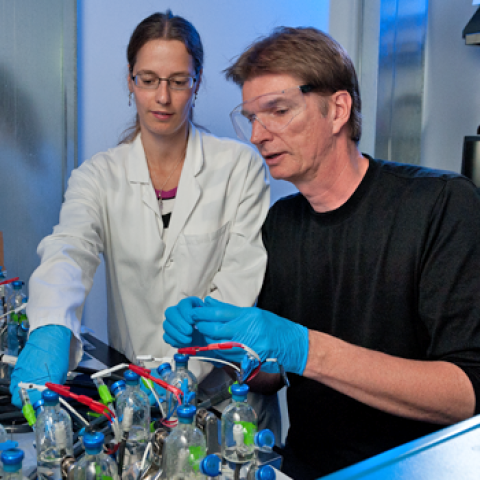Interdisciplinary Initiatives Program Round 4 – 2008
Pankaj Jay Pasricha, no longer at Stanford
Alfred Spormann, Civil & Environmental Engineering
Justin Sonnenburg, Microbiology & Immunology
It is increasingly being recognized that bacteria and other microbial organisms in our gut may have a major influence on our own body physiology. Further, changes in the bacterial community could result in disease states such as inflammatory bowel disease, irritable bowel syndrome and others. While many investigators are focusing on the identification of specific bacterial species in health and disease, we propose that it is equally, if not more, important to characterize the bacterial community in the gut in terms of individual metabolic profile (i.e. what kinds of fermentation and other processes are they using to generate energy). This is because the products of their metabolic activity are the likely mediators of the effects bacteria have on the host body.
It is our intention to develop a tool in the form of a molecular chip that can rapidly detect the expression of key genes involved in bacterial metabolism. Such a chip can provide a snapshot of the overall metabolic profile of the bacterial community in the gut and allow us to monitor changes in various disease or health conditions. This will provide scientists in addition to us, a convenient and productive method for further investigating the exact way in which gastrointestinal bacterial communities influence our health. Crucial steps in developing this tool first require a comprehensive understanding of the microbial community structure within the large bowel of healthy and diseased models allowing for the determination of microbial identity and their implied metabolic potentials (genetic potential/predisposition). Secondly, thorough characterization of the bacterial community’s metabolic genes and expression profiles need to be assessed to identify functional differences under experimental and control conditions.



